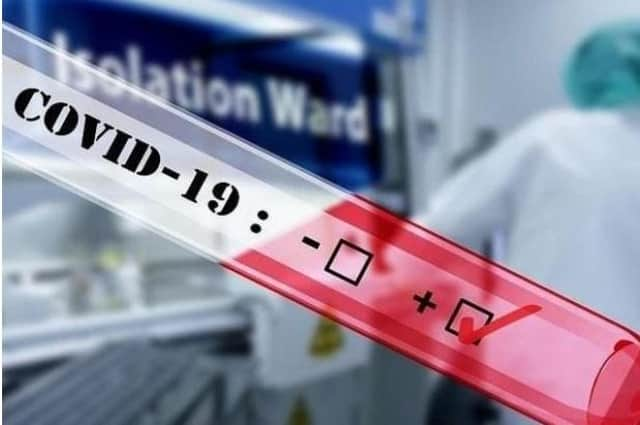Lincolnshire Coronavirus: First Omicron confirmed health interview


Lincolnshire County Council’s director of public health Professor Derek Ward also confirmed to Local Democracy Reporters on Monday that health bosses first learned about the Omicron case before the weekend.
However, he praised the strength of the testing and vaccine programmes when compared to previous strains and said the key message was to get vaccinated and remember “hands, face, space”
Advertisement
Hide AdAdvertisement
Hide AdThe first Lincolnshire resident confirmed to have the Omicron was found in a Boston workplace, bosses said on Monday morning. They said it was one of two people at the workplace and had caught it directly off someone who had recently come back from South Africa – therefore defining it as a “travel-related” rather than “community” infection.
There is currently no confirmation on how mild or severe the disease is in this case.
It’s not known at this stage how many are isolating, or if the workplace has been forced to close due to the cases.
The investigation into the disease is being led by the UK Health Security Agency who are doing detailed histories, close contact isolating, tracing and testing.
Advertisement
Hide AdAdvertisement
Hide AdProfessor Ward praised the UKHSA for the speed of its response and said lessons had been learned from the original viral spread and that of Delta.
“They picked it up pretty quickly. We’ve got very good genotyping facilities in the UK.
“On Friday, the first conversation I had, we didn’t know we hadn’t yet found the link to somebody coming into the country, so it was a risk at that point that it was community-based transmission but then later on Friday, within a matter of hours, we established it was actually somebody who had been in South Africa who’d come back.
“I think our understanding the viruses really helped in the speed of response,” he said.
Advertisement
Hide AdAdvertisement
Hide AdHowever, Professor Ward said he did not think this was the end of the line for the variant.
Over the past seven days, Lincolnshire has seen more than 3,600 cases of coronavirus in general, with nearly 400 in Boston.
“I expect it to spread very quickly but it’s really difficult to predict just how quickly,” he said, adding that the example for transmission so far was South Africa which had a much younger and less vaccinated population.
However, he said: “It is almost certainly more transmissible, so it’s easy to catch and easier to pass on just like Delta was before it.”
Advertisement
Hide AdAdvertisement
Hide AdIt was “highly likely” the vaccine has “some ability to evade the vaccine”, said Professor Ward, but said those who were double or booster dosed had a “significantly reduced” chance of getting a severe disease.
He said this was “really important”.
“If more people catch it, and it’s easy to pass on, especially as we go to the Christmas season, the risk is we get a very big number of cases in January and unless it is a very, very mild disease -much, much milder than we see with Delta – there’s a risk if we get lots and lots of cases all at once that we’ll overwhelm our NHS and that’s the concern really.”
He added that since the COVID-19 had begun the county’s vaccine and testing programmes were “really resilient”.
Daniel Jaines , Local Democracy Reporting Service